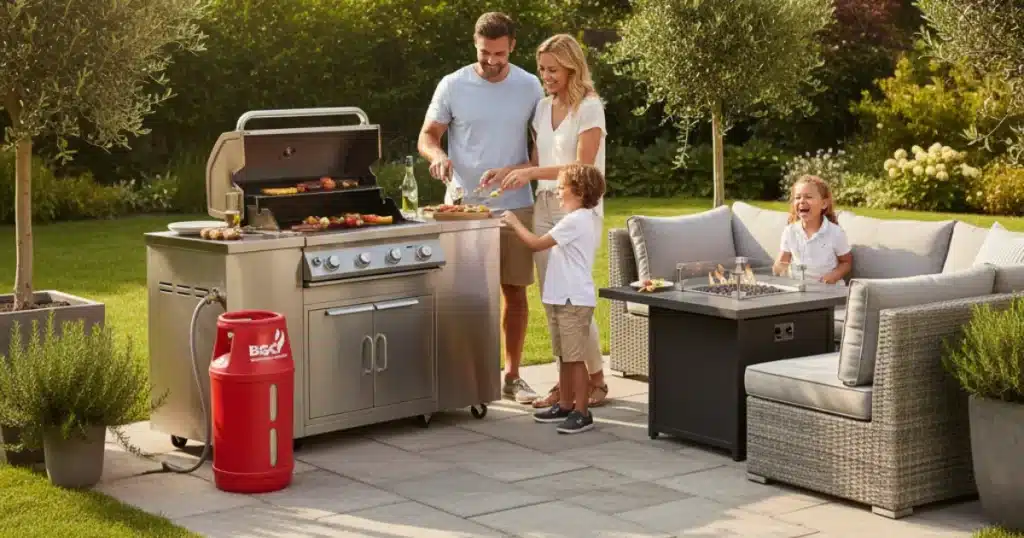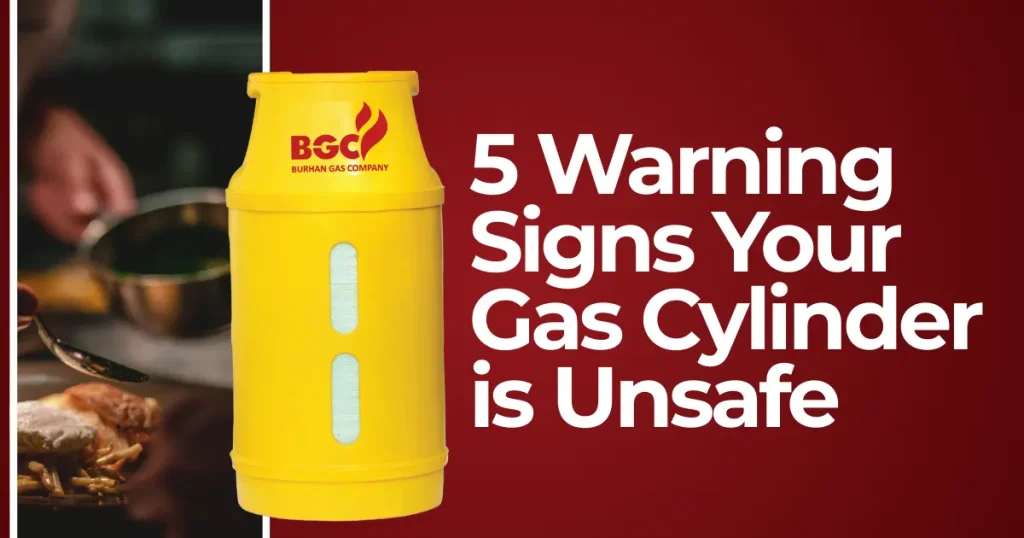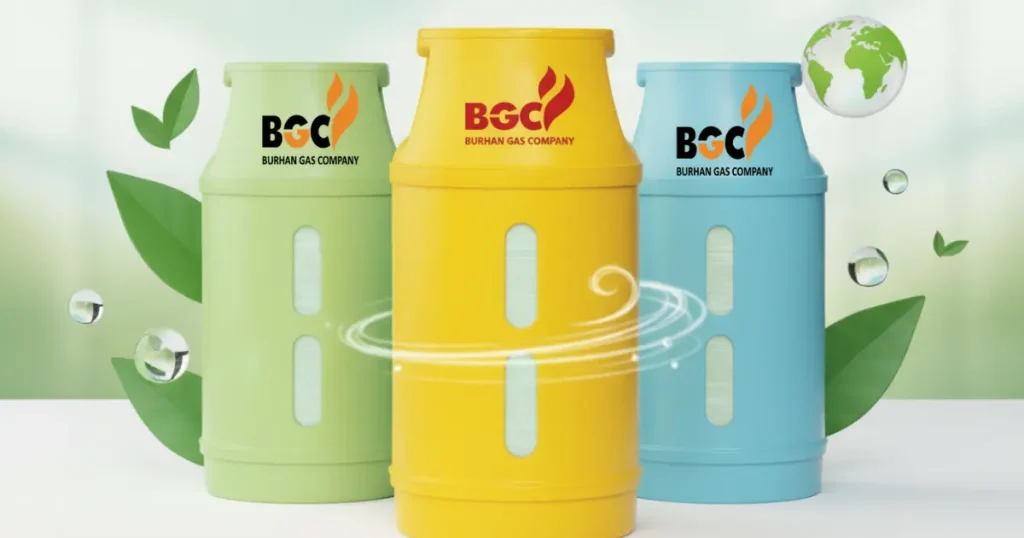Outdoor cooking has become one of the most popular lifestyle trends worldwide. From home patios to luxury outdoor kitchens, people love cooking and spending time in open-air spaces. As this trend continues to grow, so does the need for safer and more convenient fuel options — and LPG remains one of the most efficient sources for outdoor cooking.
Traditionally, steel LPG cylinders have powered most outdoor kitchens and BBQ setups. However, a new generation of composite LPG cylinders is changing the game. These modern cylinders are lighter, safer, and designed to handle harsh outdoor environments better than their steel counterparts.
In this blog, we’ll explore what makes composite LPG cylinders special, how they perform in outdoor conditions, and whether they’re the right choice for your kitchen or BBQ setup.
Understanding Composite LPG Cylinders
What Are Composite LPG Cylinders?
Composite LPG cylinders are made from advanced materials such as fiberglass-reinforced plastic (FRP) and carbon fiber composites. Instead of using metal, they use a three-layer construction system:
- Seamless liner that holds the gas safely
- Fiberglass wrapping that provides strength and pressure resistance
- Outer shell that protects the cylinder from impact and sunlight
How They Differ from Traditional Steel Cylinders
Unlike heavy and rust-prone steel cylinders, composite cylinders are lightweight, non-corrosive, and visually modern. Their translucent design allows users to easily see how much gas is left — something you can’t do with a steel tank.
The manufacturing process also differs; composites are made with high-pressure molding and resin bonding techniques, ensuring better strength and no risk of rust or leaks.
Advantages of Composite Cylinders for Outdoor Cooking
A. Weight and Portability Benefits
Composite LPG cylinders are about 50% lighter than traditional steel cylinders. This makes them perfect for outdoor use, where moving and lifting cylinders can be a hassle.
Their ergonomic handles and compact design make them easy to carry around patios, decks, or gardens. For BBQ lovers and outdoor chefs, this means less effort and more convenience.
B. Enhanced Safety Features
Safety is one of the biggest reasons people are switching to composite cylinders.
Unlike steel, these cylinders are non-explosive — if exposed to fire, they release gas gradually instead of bursting.
They also offer:
- Superior impact resistance against falls or knocks
- Fire-resistant properties that delay combustion
- Non-fragmenting design, which means even in severe accidents, they don’t explode into dangerous pieces
This makes them ideal for homes, restaurants, and outdoor gatherings.
C. Weather and Environmental Resistance
Outdoor kitchens face constant exposure to the elements — sun, rain, humidity, and dust. Composite cylinders are built to handle all of it.
They’re 100% corrosion-resistant, UV-resistant, and can withstand temperatures above 65°C (149°F) without losing performance.
Unlike steel cylinders that rust and stain floors, composite cylinders stay clean, even in coastal or humid climates.
D. User-Friendly Features
Another major plus is convenience. Their translucent body lets users visually check the gas level, avoiding unexpected run-outs during a BBQ.
They don’t leave rust marks or stains and are designed with comfortable collars and handles for easy handling.
Many models are even stackable, which helps save space in storage.
Technical Specifications and Performance
A. Available Sizes and Capacities
Composite cylinders are available in various sizes, including 5kg, 10kg, 13kg, and 20kg, making them suitable for both small home setups and large commercial kitchens.
B. Pressure and Temperature Ratings
Most composite LPG cylinders are designed to handle the same pressure levels as steel ones. They can operate safely in both hot and cold weather, maintaining a stable gas flow during cooking.
C. Compatibility with Outdoor Cooking Equipment
These cylinders utilize standard valve connections that are compatible with most BBQ grills, burners, and outdoor kitchen systems.
Whether it’s a standalone grill, a pizza oven, or a full outdoor cooking range, composite LPG cylinders integrate easily.
Applications in Outdoor Kitchens and BBQs
A. Residential Outdoor Kitchens
For homeowners, composite cylinders are a perfect match for built-in outdoor kitchens and patio cooking setups. They look modern, require low maintenance, and are easy to move around when refilling or cleaning.
B. Commercial and Semi-Commercial Uses
Restaurants, cafes, and hotels with outdoor cooking or BBQ areas are now adopting composite cylinders due to their safety and clean appearance.
They’re also widely used in food trucks, mobile catering services, and hospitality setups where weight, safety, and portability matter.
C. Portable and Recreational Applications
If you love camping, RV trips, or tailgating, composite cylinders are an excellent option. They’re light to carry, safe to transport, and can handle tough outdoor conditions like rain or heat.
Buying Guide and Recommendations
A. Key Selection Criteria
Before buying, consider:
- Your outdoor kitchen or BBQ size
- Required gas capacity
- Brand reputation and safety certifications
- Warranty and after-sales service
B. Top Recommended Brands
Some trusted names include Burhan Gas Company, all known for high-quality manufacturing and compliance with global standards.
C. Where to Buy
You can directly purchase online from burhangas.com/sale or from their authorized dealers in each city of Pakistan.
For refills, check with local LPG suppliers that support composite cylinder systems.
Conclusion
Composite LPG cylinders are not just a modern alternative to steel — they represent a complete upgrade in safety, performance, and convenience.
For homeowners, they make outdoor cooking simpler and safer. For commercial kitchens, they reduce maintenance and operational risks.
If you want a lighter, rust-free, and more reliable fuel solution for your outdoor kitchen or BBQ setup, composite LPG cylinders are absolutely suitable.
While the upfront cost may be higher, the long-term benefits — safety, durability, and peace of mind — make them a smart investment for both households and businesses.





